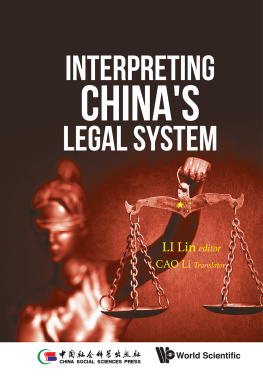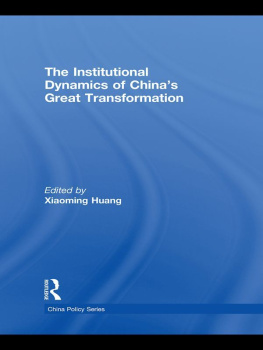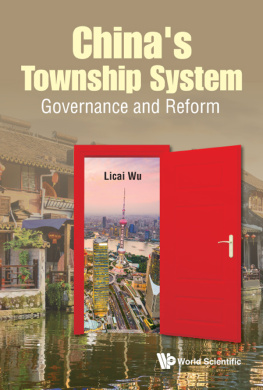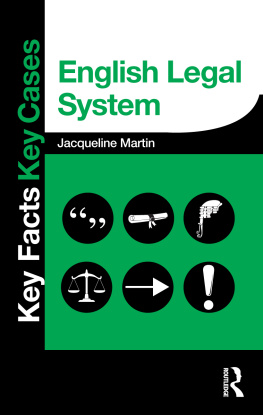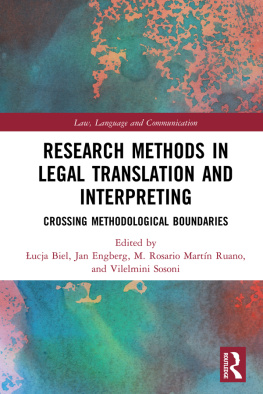Lin Li - Interpreting Chinas Legal System
Here you can read online Lin Li - Interpreting Chinas Legal System full text of the book (entire story) in english for free. Download pdf and epub, get meaning, cover and reviews about this ebook. year: 2018, publisher: World Scientific, genre: Politics. Description of the work, (preface) as well as reviews are available. Best literature library LitArk.com created for fans of good reading and offers a wide selection of genres:
Romance novel
Science fiction
Adventure
Detective
Science
History
Home and family
Prose
Art
Politics
Computer
Non-fiction
Religion
Business
Children
Humor
Choose a favorite category and find really read worthwhile books. Enjoy immersion in the world of imagination, feel the emotions of the characters or learn something new for yourself, make an fascinating discovery.
Interpreting Chinas Legal System: summary, description and annotation
We offer to read an annotation, description, summary or preface (depends on what the author of the book "Interpreting Chinas Legal System" wrote himself). If you haven't found the necessary information about the book — write in the comments, we will try to find it.
Lin Li: author's other books
Who wrote Interpreting Chinas Legal System? Find out the surname, the name of the author of the book and a list of all author's works by series.
Interpreting Chinas Legal System — read online for free the complete book (whole text) full work
Below is the text of the book, divided by pages. System saving the place of the last page read, allows you to conveniently read the book "Interpreting Chinas Legal System" online for free, without having to search again every time where you left off. Put a bookmark, and you can go to the page where you finished reading at any time.
Font size:
Interval:
Bookmark:



 or fal
or fal  (law) was endowed with unique meaning. According to Shuowen Jiezi
(law) was endowed with unique meaning. According to Shuowen Jiezi (Origin of Chinese Characters), the first wordbook in Chinese history,
(Origin of Chinese Characters), the first wordbook in Chinese history,  in simplified Chinese stems from the ancient variant
in simplified Chinese stems from the ancient variant  This Chinese character is composed of three parts:
This Chinese character is composed of three parts:  and
and  signifies water, showing that xin
signifies water, showing that xin  (punishment) should be just;
(punishment) should be just;  (zhi) is a holy creature in Chinese mythology and said to intensely loathe, unprincipled people;
(zhi) is a holy creature in Chinese mythology and said to intensely loathe, unprincipled people;  (qu) means leave, showing that those having committed evil deeds can be scared away by zhi. This interpretation implies that in ancient Chinese, law
(qu) means leave, showing that those having committed evil deeds can be scared away by zhi. This interpretation implies that in ancient Chinese, law  and punishment
and punishment 
Font size:
Interval:
Bookmark:
Similar books «Interpreting Chinas Legal System»
Look at similar books to Interpreting Chinas Legal System. We have selected literature similar in name and meaning in the hope of providing readers with more options to find new, interesting, not yet read works.
Discussion, reviews of the book Interpreting Chinas Legal System and just readers' own opinions. Leave your comments, write what you think about the work, its meaning or the main characters. Specify what exactly you liked and what you didn't like, and why you think so.

